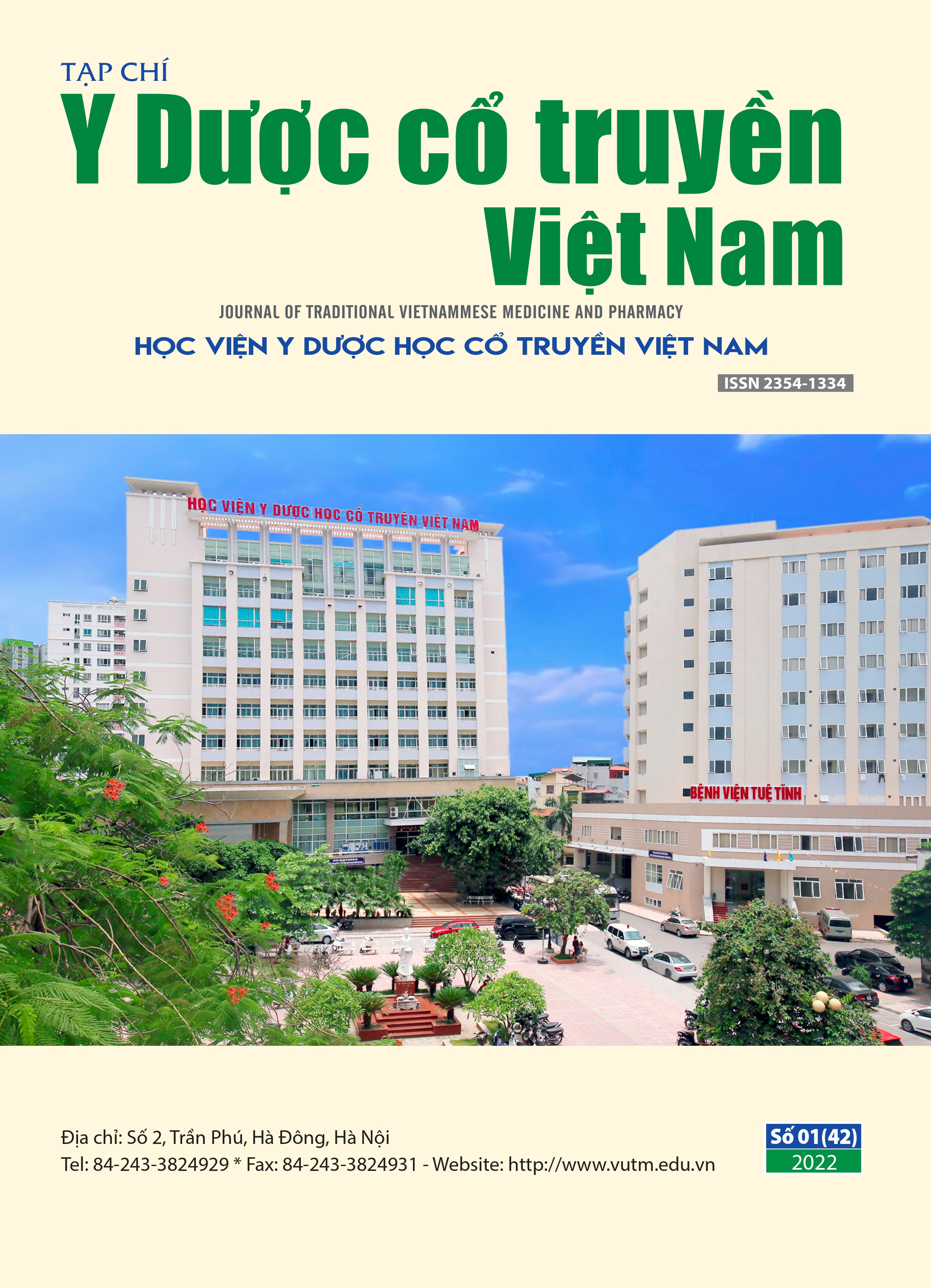Some Factors Affecting The Extract Performance And High Active Contents Of Cordyceps Militaris
Main Article Content
Abstract
Aims: To choose solvent concentration (ethanol) and temperature for extraction to ensure highest efficiency and contents of active ingredients in the extract from Cordyceps militaris mushroom.
Methods: Extraction of Cordyceps millitaris with ethanol of different concentrations and at different temperatures; Adenosine and Cordycepin in the extracs were assayed by by high performance liquid chromatography (HPLC).
Results: Extraction of cordyceps militaris mushroom by ethanol solvent (EtOH) at concentrations: 300; 600 and 900 gave the extraction efficiency: 54.95%; 42.23%; and 36.18% respectively; adenosine content: 1.2 mg/g;
0.24 mg/g and unidentified, respectively; average content of cordycepin (mg/g): 1.88 mg/g; 1.69 mg/g and
1.73 mg/g, respectively. Extraction in 300 EtOH at different temperature conditions: room temperature (25oC); 40oC; 60oC and 80oC give extraction efficiency (%) respectively: 53,4 %; 54,95 %; 52,35 %; 50,26%; average adenosine content: 1.13 mg/g; 1.2 mg/g; 0.78 mg/g; 0.65 mg/g, respectively; content of cordycepin: 1.81 mg/g;
1.88 mg/g; 1.91 mg/g; 2.1 mg/g, respectively.
Conclusion: The extraction efficiency and content of active ingredients in Cordycept millitaris extracs were influenced by solvent concentration (ethanol) and temperature. Extraction with 300 ethanol with ultrasonic vibration at 40oC is the optimal extraction condition to obtain the highest extraction efficiency and highest content of active ingredients.
Article Details
Keywords
Adenosine, cordycepin, Cordyceps millitaris, extraction efficiency.
References
2. Nguyễn Thị Liên Thương, Trịnh Diệp Phương Danh, Nguyễn Văn Hiệp (2016). Nấm đông trùng hạ thảo Cordyceps militaris: Đặc điểm sinh học, giá trị dược liệu và các yếu tố ảnh hưởng đến quá trình nuôi nấm, Tạp chí khoa học Trường Đại học Cần Thơ, 9-22.
3. Lê Thị Huyền Trang và cộng sự (2017). “Nghiên cứu xây dựng quy trình chiết xuất adenosin và cordycepin từ đông trùng hạ thảo nuôi cấy (Cordyceps militaris)”, Tạp chí Dược học, 57 (4).
4. Chang-LiangYAO, Zheng-Ming QIAN (2019). “Profiling and identification of aqueous extract of Cordyceps sinensis by ultra-high performance liquid chromatography tandem quadrupole-orbitrap mass spectrometry”, Chinese Journal of Natural Medicines, 17 (8); 631-640
5. H. S. Tuli, S. S. Sandhu, A. K. Sharma (2014). “Pharmacological and therapeutic potential of Cordyceps with special reference to Cordycepin”, 3 Biotech, 1-12.

